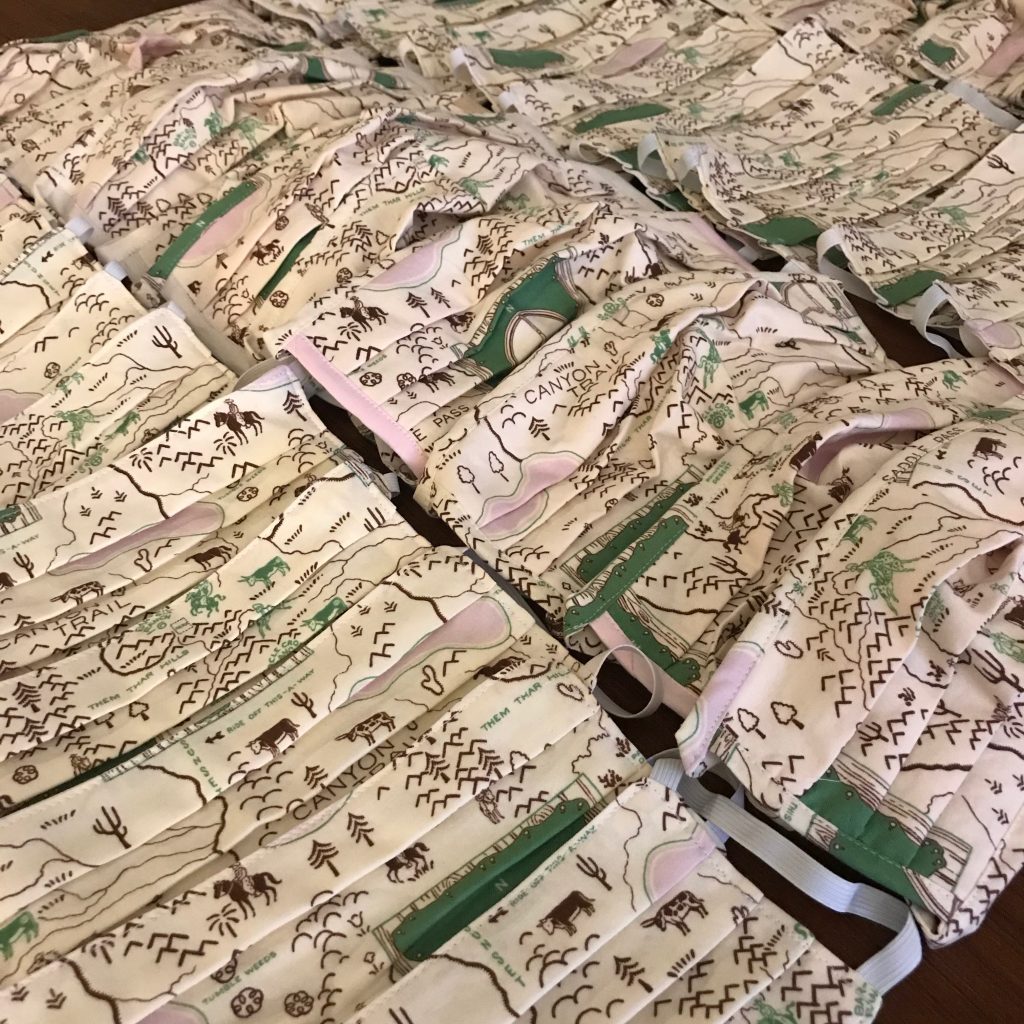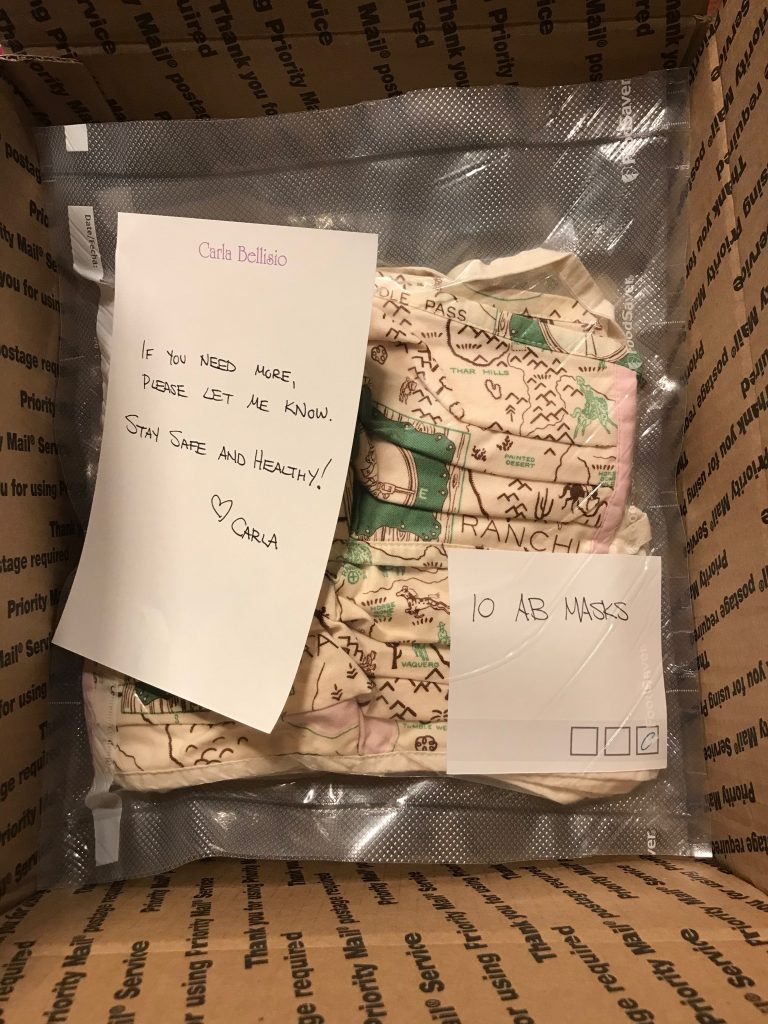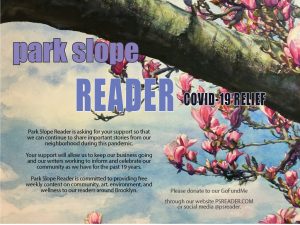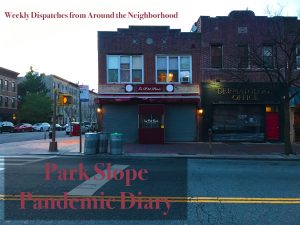
Since the early days of the novel coronavirus outbreak, confusion and controversy surrounding self-protective measures and Personal Protective Equipment (PPE) have continued to circulate in the United States. The Centers for Disease Control and Prevention (CDC) recommend wearing non-surgical grade masks and cloth face coverings in public and reserving high-grade N95 respirator masks for healthcare workers and medical first responders. A review of federal purchasing contracts confirmed that the Trump Administration failed to stockpile life-saving medical equipment, vital to protecting medical frontline workers and treating patients infected with COVID-19. The fractured federal response to the pandemic has caused mass shortages in PPE and ventilator machines, draining resources from the Strategic National Stockpile.
The shortages of medical equipment and PPE have led many skilled artisans and emergency response collectives to organize, producing thousands of units of protective wear each week. Professional Fashion Designer and Co-Founder of Fermata Designs, Carla Bellisio, has sewn hundreds of cloth facemasks and reusable surgical gowns for essential workers, first responders, and frontline health personnel.
We spoke to Bellisio to get a rare glimpse into the life of a professional artist, amid the pandemic. Our conversation has been edited for brevity and clarity.

PSR: Where are you from, and how long have you worked in the fashion industry?
Carla Bellisio: I was born and raised in central New Jersey, along the coast, and moved to New York City in 2005. I have worked in costume design for numerous theatre companies in the city, and I am currently studying Sustainable Fashion at the London College of Fashion.
I started making doll clothes at a very early age. I was unhappy with the manufactured clothing that the dolls were dressed in. I began sewing my own. Earlier generations of my family lived in New York. My grandmother worked as a milliner in the garment district, and my dad was born and raised in Flatbush. When he was a boy, he worked for a manufacturer in the garment district as an errand boy. A generation before that, my great grandfather worked as a glover in Italy.
PSR: NYC’s first confirmed case of the novel coronavirus was reported on March 1. When did you first begin sewing masks?
Carla Bellisio: I was still in Europe when the virus was first reported in NYC. I came home for Easter break during the second week of March. At first, I wasn’t thinking too much about the possibility of not being able to return to school after the break. The plane ride to New York was daunting. I realized that I might not be able to return to London after the break and that I would need to quarantine myself for a few weeks. I did not start making masks right away; I did a lot of research first. I knew I had the resources and capability to make large quantities of masks. I wanted the specifications to be correct so that I could utilize my resources and time in the most effective way possible.
The first set of 150 masks was made with supplies from my own stock. I sent the masks to friends, family, neighbors, and local workers. I also sent boxes of masks to physicians and nurse practitioners at the Thomas Jefferson University teaching hospital in Philadelphia, and Columbia Presbyterian hospital here in New York. It wasn’t until later that I began making surgical gowns for medical workers.
PSR: To clarify, you are supplying the materials to sew masks. How are you able to sustain this model, and have you considered asking for donations?
Carla Bellisio: When my supplies began to narrow, my friends and family sent me fabric. I have not asked for cash donations or charged for the masks. I don’t feel that it is right for me to profit off of them. Once you start selling masks, it becomes a business and you have to give customer service.
I recently partnered with two artists coalitions to make PPE. The fabric is provided by the organizations.
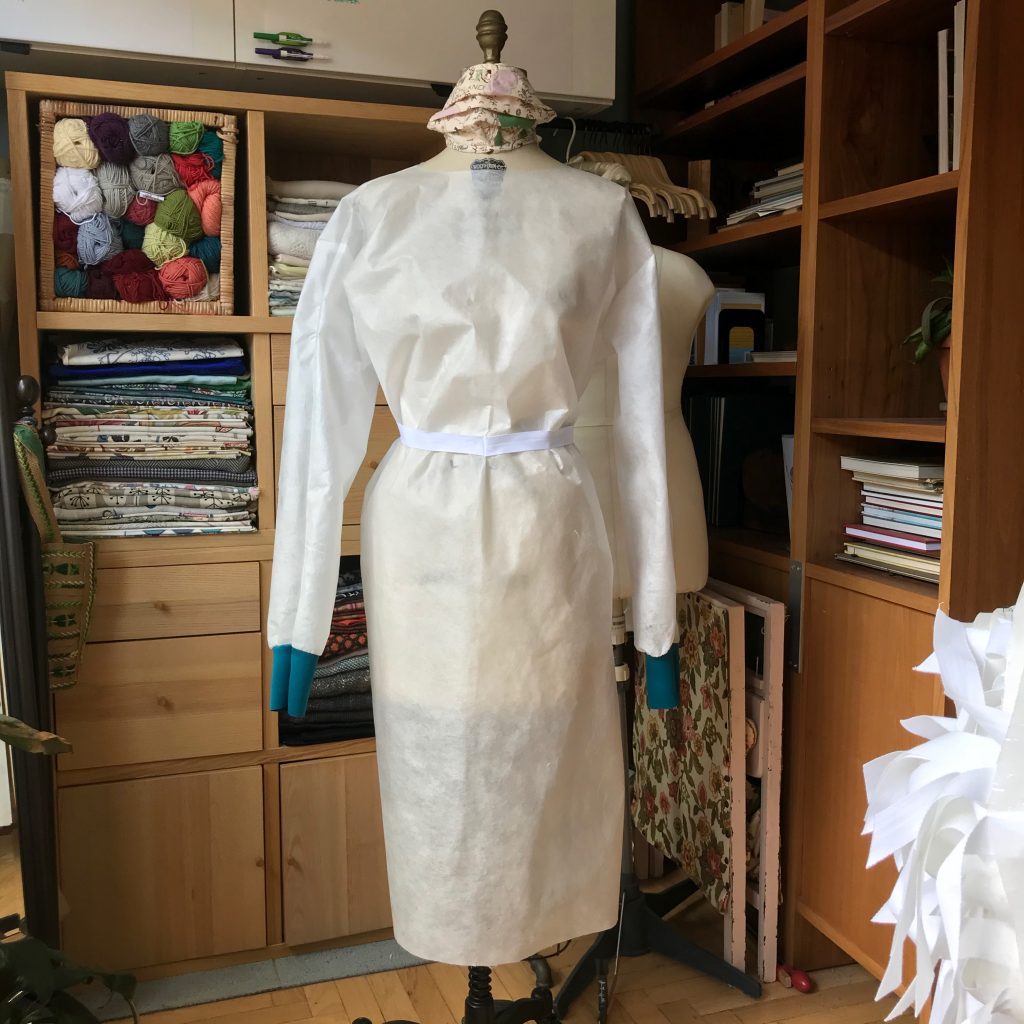
PSR: You are working with emergency response organizations, The Skilled Laborers Brigade, and Broadway Relief Project. You have sewn hundreds of reusable masks for public service workers and surgical gowns for the medical community. Can you tell us more about your involvement with these organizations?
Carla Bellisio: The Broadway Relief Project was contracted by the NYC EDC (Economic Development Corporation) to build 39,000 emergency gowns for NYC hospitals. So that’s what I am working on now. The previous gowns I made also went to NYC hospitals.
I received an update email from The Skilled Laborers Brigade. The box of 50 masks I stitched for them contributed to a set of 5,000, which went to:
- 1,500 masks into the hands of Firefighters in Freemont, CA
- 600 masks into the hands of ER Nurses at Mt. Sinai West
- 1,500 masks into the hands of doctors across NYC
- 300 masks to nurses at Burke Rehabilitation
- 300 masks to doctors Montefiore Medical Center
- 800 masks to doctors in NY/NJ
PSR: That’s incredible. Has this experience been personally rewarding for you?
Carla Bellisio: Yes, it really has. I’m still taking classes remotely and working towards my Master’s degree, but sewing PPE for frontline workers has given me a lot of purpose during this time. The physical act of sewing is meditative and has kept me focused.
PSR: You are studying Sustainable Fashion at the London College of Art. How has the pandemic changed the trajectory of your studies?
Carla Bellisio: The pandemic is affecting all of my assignments. This has truly changed the future of the fashion industry. If we ignore the effects of this then we ignore the pandemic. PPE has traditionally been disposable. The gowns are made of paper with a plastic backing. Now we are sewing reusable cloth gowns, made of cotton. If there is any silver lining, it’s that we needed to slow down and create clothing that is ethically sourced and consciously produced. The fashion industry can aggressively take steps to improve fashion sustainability.
PSR: The PPE you are sewing is made of reusable cotton fabrics, none of which are medical grade. Multiple reports suggest that the Trump administration not only failed to prepare hospitals and essential frontline workers with life-saving equipment, including N95 respirator masks and ventilator machines, but they also rejected offers from medical supply manufacturers. What is your response to this?
Carla Bellisio: I’m reluctant about it. The masks and gowns I have sewn are not surgical, medical-grade. These are not N95 masks; they are cloth. I was happy to make cloth facemasks for my friends and neighbors. I wanted them to feel protected going to the grocery store. It’s unnerving that artists and designers are making PPE for medical workers. We are making these items in our apartments, not sterile spaces. If hospitals had steady supplies of the proper medical equipment, many lives could have been saved.
PSR: Both President Trump and Vice President Pence have faced criticism for rejecting the recommendations of the CDC and their own administration’s counsel to wear face masks in public spaces. In New York, all residents over the age of two are mandated to wear a mask or cloth face-covering in public. Last week, Mayor De Blasio announced that the city will distribute 7.5 million face coverings to New Yorkers in select locations. What is your response?
Carla Bellisio: I think the mandate is a good idea, but only paired with the free mask initiative. When I began making masks there was a lot of conflicting information about the efficacy of wearing them, but overall they do provide protection. By mandating their use, I think it emphasizes the need to be smart about wearing PPE, but providing free masks is crucial. One of the reasons I don’t charge for masks is because I know how important it is for everyone to have a base level of protection. I try to make it easy for my community to access them. I will keep sewing masks as long as people need them.
SUPPORT PARK SLOPE READER – KEEP US FREE AND LOCAL
During this time of uncertainty, we at the Park Slope Reader are committed to continually serving our community. Please follow us each week as we catalog changes in our neighborhoods, while providing the latest medical developments and valuable resources. Park Slope and adjoining areas are unique to the New York City landscape, and we will continue highlighting our neighbors through weekly editorials. This is a challenging and historic time; please know we are committed to getting through this together.
We want to know how the coronavirus pandemic is affecting you. If you have a story to share please contact us at office@psreader.com.

